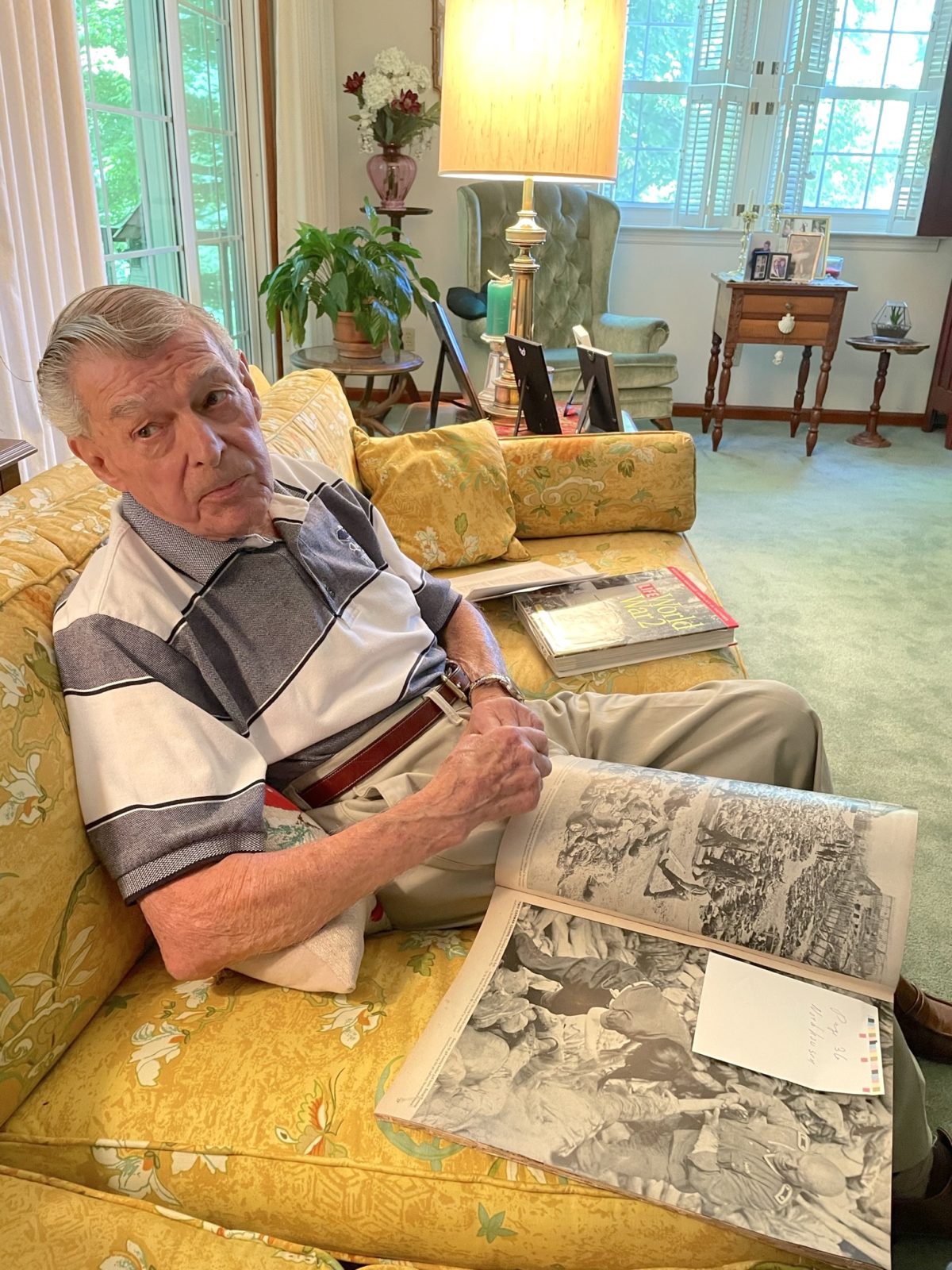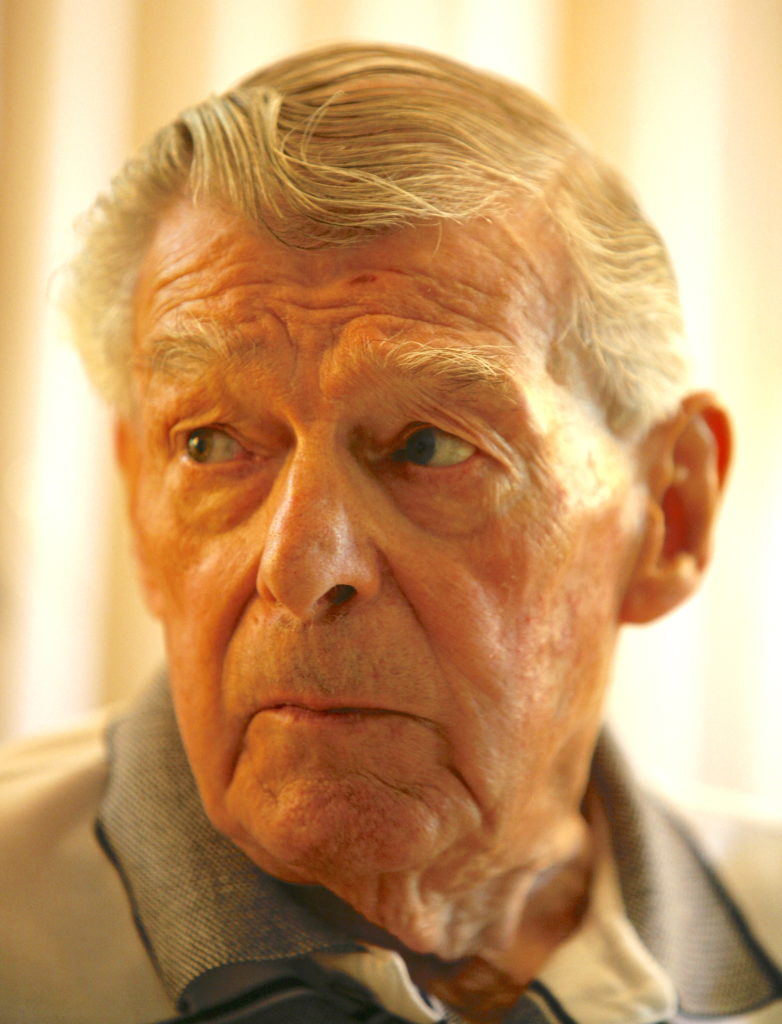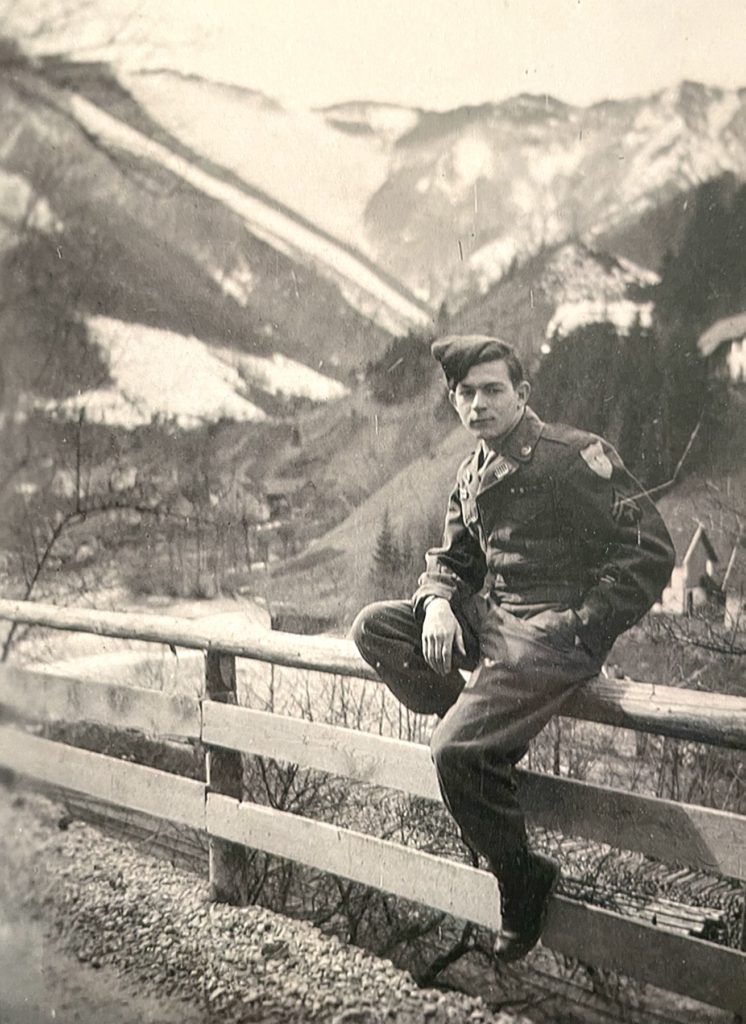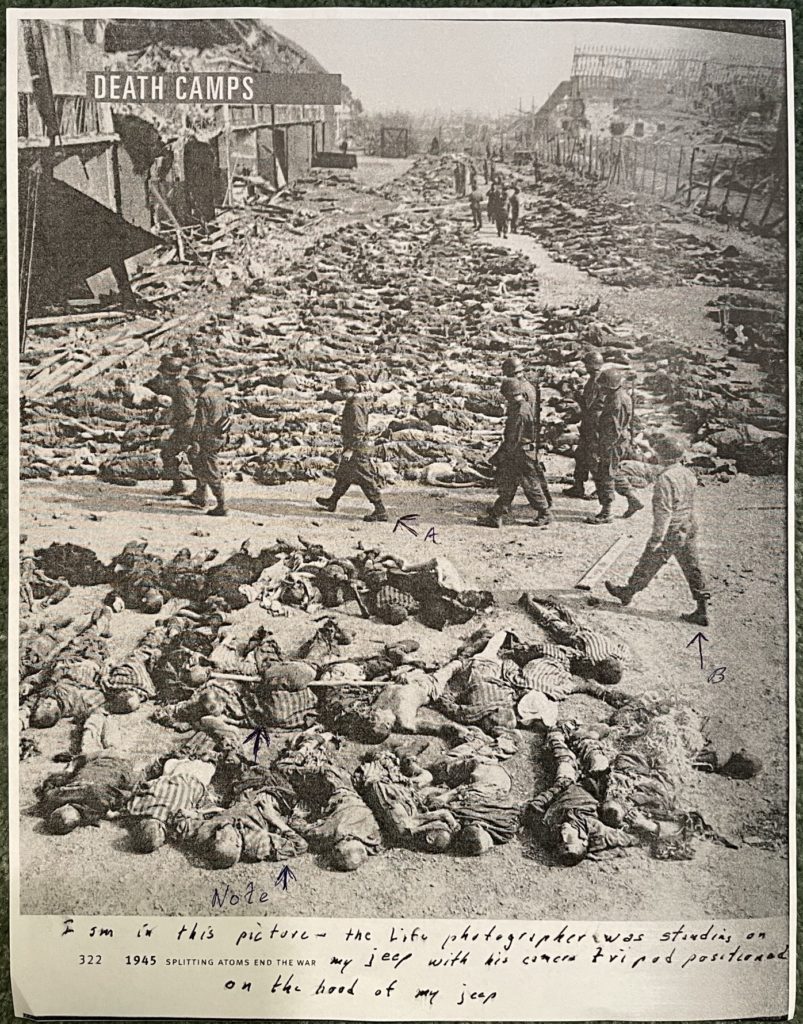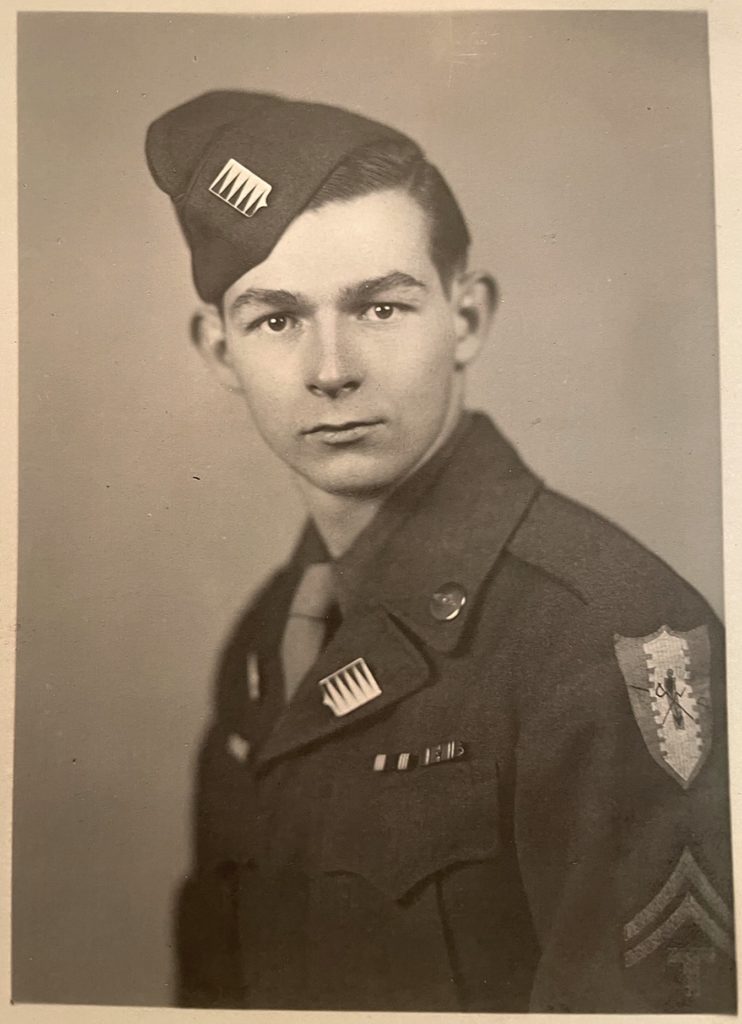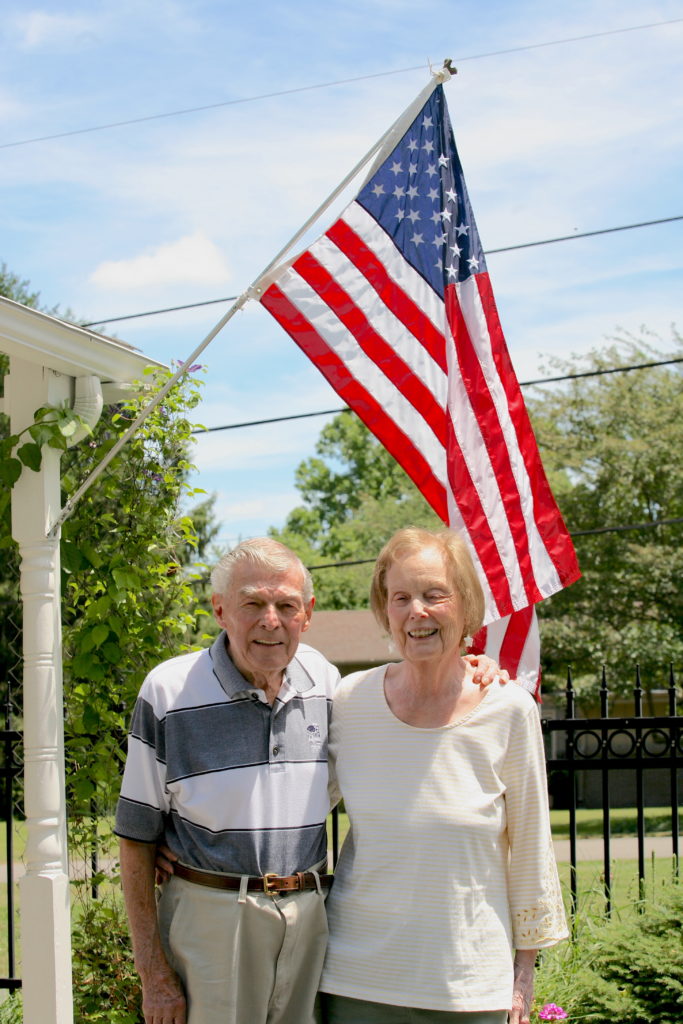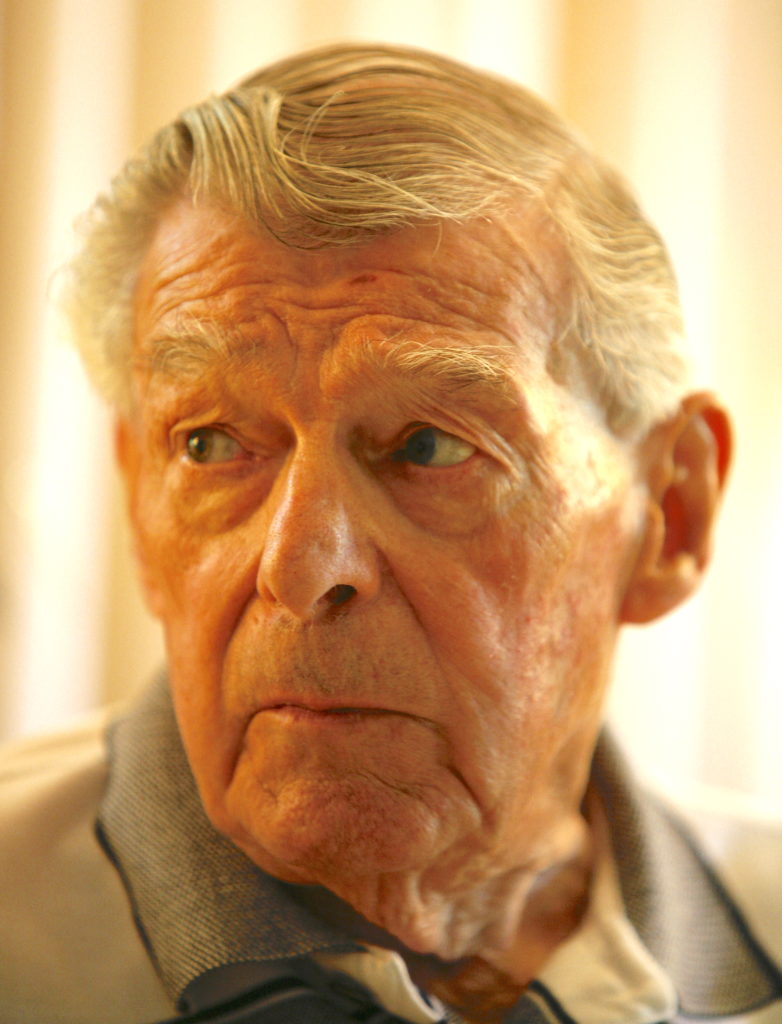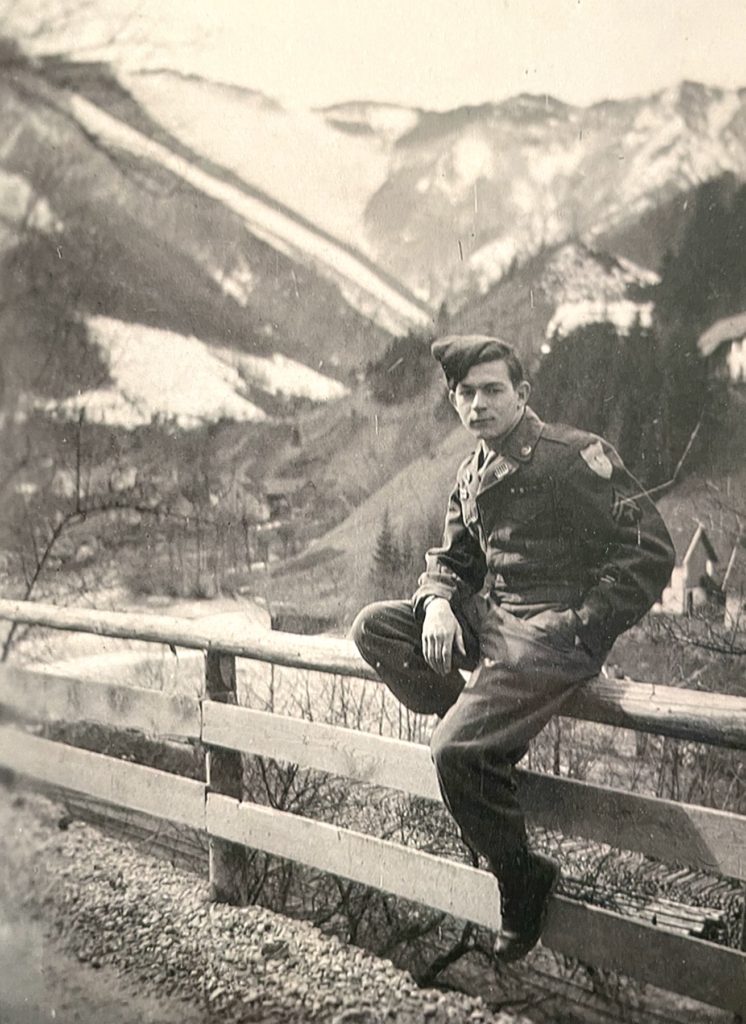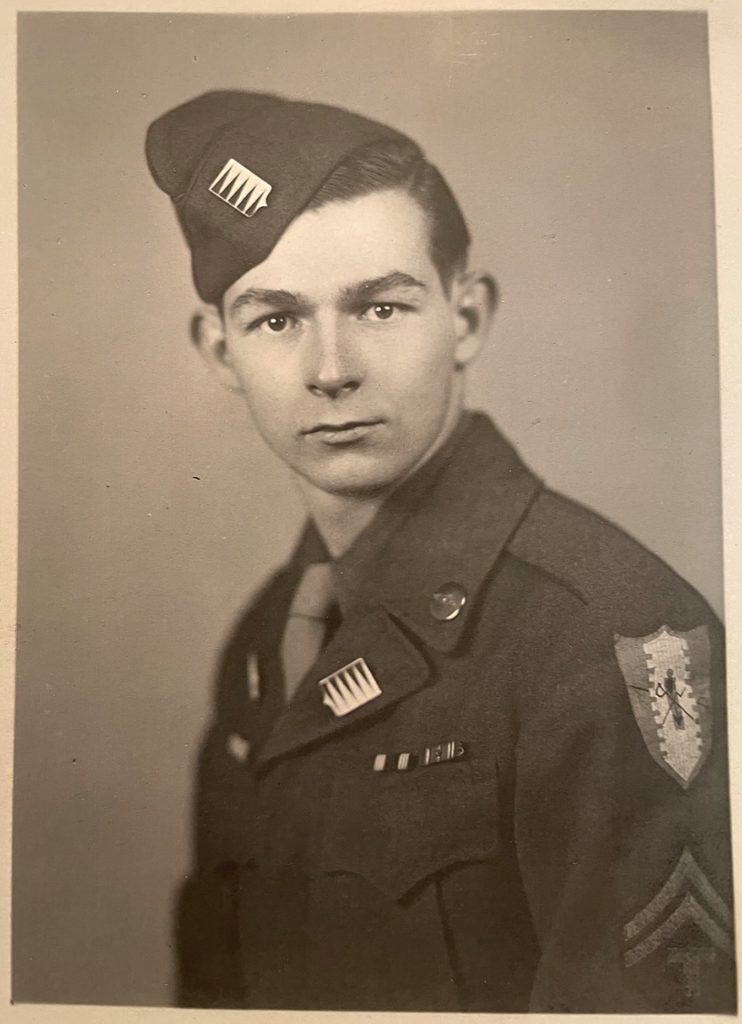The mission was as sickening as it was vital to ending World War II.
The U.S. troops moving toward Nordhausen, Germany, in April of 1945 could smell death from two miles away, said Robert Coyne, who at the time was a tank gunner so young that he hadn’t yet finished high school in his hometown of Newark, Ohio.
What he and his fellow troops witnessed is seared into his memory – thousands of dead and dying prisoners who had been forced to work on Germany’s secret weapon, rocket engines that could have changed the course of the war.
“You didn’t know whether to vomit or what,” he said of the stunning scene.
As one of a dwindling number of World War II veterans in central Ohio, and one who helped liberate a concentration camp, Coyne, 95, was asked to be a grand marshal in this year’s Red, White and Boom parade at 5:30 p.m. Friday on Front Street between Main and Spring streets in Columbus.
“I’m not sure why they picked me,” he said.
His friends and family know. It’s because of his role in Germany 77 years ago.
On Sept. 10, 1943, Coyne began his senior year of high school in Newark, where he was born and raised. By Sept. 20, the 18-year-old Coyne was at Fort Knox training to serve in the Army, and in 1944, he boarded the Queen Mary, a ship that could hold up to 16,000 soldiers at a time and get them to the war effort in Europe.
Coyne, who is looking forward to his 96th birthday in a few weeks, sat in the living room of the Newark home he shares with his wife, Alice, 92, who he met at a dance in Newark after the war. While she listened, he recalled entering the Mittelbau-Dora camp near Nordhausen.
He spoke in vivid detail about the sights and smells and putrid conditions the troops found there.
Holding the May 1945 issue of LIFE Magazine, Coyne turned to an image of U.S. troops arriving at Nordhausen. He stopped and pointed to one of the soldiers walking between rows of corpses.
“That one is me,” Coyne said, pointing to a helmeted soldier. The image conveys the staggering loss of life.
“Our advance patrol stopped the convoy (outside of town), and we could smell it,” Coyne said. “I don’t know how far out of town we were; I’m guessing a couple miles out.”
The camp held about 20,000 Jewish people and other prisoners.
“But you became numb,” Coyne said, staring for a quiet moment at the image in his hands. Then he changed the subject.
The Mittelbau-Dora camp, he said, was a camp where prisoners were forced to work in an underground mine to build rocket engines to be used to launch bombs. Because the camp was within the “Russian Zone” of Allied territory, he said, the U.S. troops worked quickly to pack up the engines and related technology and intelligence, and to get them to a safe location in U.S.-held territory.
“If Hitler had these sooner, our Air Force wouldn’t have had a chance,” Coyne said. “It was very important for the government and our officers to take this mine because of the technology.”
Coyne served in the 759th Light Tank Battalion, which was part of the 4th Cavalry Regiment.
When he returned home from the war, Coyne finished his senior year of high school and soon enrolled at The Ohio State University. “I was in that large group of veterans,” Coyne said. “And I decided to heck with it, I can do better.”
So he left college after a year and a half and worked several jobs before landing a job as a printer’s apprentice at The Newark Advocate. Within a few years, Coyne became the manager of the commercial printing department. And within 10 years, he decided he wanted his own printing company.
Coyne Graphic Finishing in Mount Vernon now belongs to his son, Kevin Coyne.
Bob and Alice Coyne raised three children in the house they built on a hill in Newark in 1966.
The tidy yard lined with flowers is and neatly trimmed bushes is punctuated by a newly unfurled U.S. flag. The one it replaced wouldn’t properly honor the country they love – “the best in the world,” Bob Coyne said.

